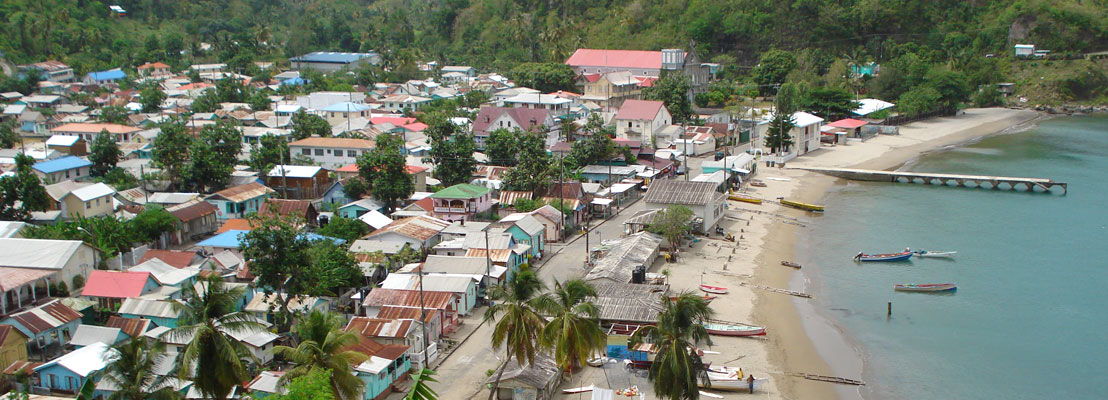OECS States…Charting their way to a Blue Economy
Media Release
Five OECS Member States today, will take a major step in their transition from Small Island Developing States (SIDS) to Large Ocean States.
High-level policy makers and technical experts from Dominica, Grenada, Saint Lucia, St. Kitts and Nevis, and Saint Vincent and the Grenadines, will today meet virtually to review and validate Coastal and Marine Spatial Plans (CMSPs) for each Member State. This process marks the culmination of a two-year process, which sought to engage key stakeholders. The draft CMSPs are being presented for validation, following a final round of consultations from October to November 2020, and high-level briefings in February 2021.
Transitioning from Small Island Developing States to Large Ocean States through sustainable use of ocean resources for the benefit of all is a major goal for the OECS. To enable fulfilment of this goal, the development of Coastal and Marine Spatial Plans forms a major component of the Caribbean Regional Oceanscape Project (CROP), which is currently being implemented by the OECS Commission on behalf of Member States.
In 2013, the OECS Heads of Government endorsed the Eastern Caribbean Regional Ocean Policy (ECROP) and its associated Strategic Action Plan (ECROP SAP) to enable a Blue Economy approach in the OECS. The ECROP guides the future use of the region’s marine waters and provides a basis for enhanced coordination and management of ocean resources within the Eastern Caribbean. The CROP is designed to contribute to the implementation of the ECROP by strengthening capacity for ocean governance, as well as coastal and marine spatial planning in participating countries.
Today’s Virtual Forum to review and validate the draft Coastal and Marine Spatial Plans gets underway at 2 p.m., during which the draft CMSPs and the enabling factors for implementation in the five participating Member States will be presented. This will be followed by discussion and validation of the Coastal and Marine Spatial Plans. The Validation Forum is targeted at national focal points.
This validation marks a critical stage in the region’s transition to a Blue Economy. These plans define an enabling framework that sets the stage for blue growth investments, and offer a 15-year timeframe to support the transition towards a Blue Economy through sustainable and equitable use of coastal and marine space, protecting coastal and marine ecosystems, and managing land-water interactions. Guided by an evidence-based Island Systems Management approach and developed using a participatory process, the plans serve as national blue economy roadmaps with interventions and investments aimed at achieving mutually reinforcing outcomes of good governance, economic growth, equitable development, environmental protection, and climate resilience in the coastal and marine space.
As part of the Forum, there will be a virtual exhibition hall where the CROP will have a dedicated booth displaying up-to-date project information, project documents, audio-visual presentations and links to the draft coastal and marine spatial plans. The CMSP Validation Forum will be preceded by the OECS CEO Breakfast in the build-up to the Sustainable Development Movement (SDM) 2021. Both events will be hosted on the OECS Virtual Convention Centre https://www.youtube.com/watch?v=mNZhl8BI_3I&feature=youtu.be
Registration for the OECS CEO Breakfast and Exhibition is now open at https://oecsceobreakfast.vfairs.com/en/registration
The Caribbean Regional Oceanscape Project (CROP) is funded by the Global Environment Facility through the World Bank. It aims to move OECS Member States closer to a blue economy.



